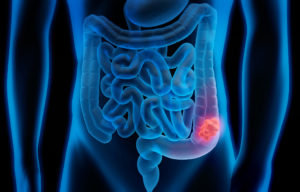
Experts are stumped as to why colorectal cancer is rising dramatically among people in their 30s and 40s
(NBC – Erika Edwards and Jessica Herzberg) — Colorectal cancer is the deadliest cancer for men under age 50 — and the second deadliest cancer among women in the same age group, behind breast cancer.
The incidence of colon cancer has been rising for at least the last two decades, when it was the fourth-leading cause of cancer death for both men and women under 50.
Among men and women of all ages, lung cancer remains the leading cause of cancer death. Prostate cancer is second for men, and breast cancer is second for women. Colorectal cancer is third, overall, for both sexes.
Even as overall cancer deaths continue to fall in the U.S., the American Cancer Society is reporting for the first time that colon and rectal cancers have become leading causes of cancer death in younger adults. The finding was published Wednesday in CA: A Cancer Journal for Clinicians.
Cancer is traditionally a disease among the elderly, although the percentage of new cases found in people 65 and older has fallen from 61% in 1995 to 58%. The decrease, attributed mainly to drops in prostate and smoking-related cancers, has occurred even though the proportion of people in that age group has grown from 13% to 17% in the general population.
In contrast, new diagnoses among adults ages 50 to 64 have increased since 1995, from 25% to 30%.
Rates of breast and endometrial cancer, as well as mouth and throat disease, have been on the rise. The report did not break down those diagnoses by age.
The findings reflect what cancer doctors have observed for years.
“For a couple of decades now, we have been noticing that the patients coming into our clinic seem to be younger and younger,” said Dr. Kimmie Ng, the director of the Young Onset Colorectal Cancer Center at Dana-Farber Cancer Institute in Boston. “What this report now cements for us is that these trends are real.” Ng was not involved with the new report.
Dr. William Dahut, the chief scientific officer at the American Cancer Society, said younger people tend to be diagnosed at later stages, when the cancer is more aggressive.
“So it’s not only having a colorectal cancer — it’s colorectal cancer that’s more difficult to treat, which is why we’re seeing these changes in mortality,” Dahut said.
The diagnosis of late-stage colorectal cancer was a shock to Sierra Fuller, 33, of Acton, Massachusetts, just outside Boston. It was around Christmas 2021 when Fuller noticed blood in her stool when she went to the bathroom. With no family history of colon cancer, she figured the problem was most likely an annoying hemorrhoid.
Weeks later, the blood deposits worsened, and she started having abdominal pain.
“It was a month from when I got the symptoms to when I sought help, and I realize that I was pushing it,” she said. Tests revealed she had stage 3b colorectal cancer. That usually means the cancer has started to spread through the colon and possibly to nearby lymph nodes, but not any farther, according to the American Cancer Society.
It was a blow to Fuller and her husband, who had just started talking about whether to try for a baby. They decided to freeze embryos before Fuller’s treatment protocol, which would include radiation, chemotherapy and surgery.
It is an example of how cancer uniquely affects young patients.
“People younger than 65 are less likely to have health insurance and more likely to be juggling family and careers,” Dahut said in a news release announcing the new report. “Also, men and women diagnosed younger have a longer life expectancy in which to suffer treatment-related side effects, such as second cancers.”
Just over a year later, Fuller is cancer-free but must get regular scans and blood tests. She said that she feels good but that she is “always going to have that worry” that her cancer will return.
“If I have to go through this again, whatever that looks like, I’ll cross that bridge if it comes,” Fuller said.
Why is cancer rising in younger people?
Doctors do not know why cancer, especially colorectal cancer, is becoming more common in younger adults. Some hypothesize that increasing obesity rates, sedentary behavior and unhealthy diets could be playing roles.
“But honestly, the patients we’re seeing in clinic often do not fit that profile,” said Dr. Kimmie Ng, the director of the Young Onset Colorectal Cancer Center at Dana-Farber Cancer Institute in Boston. “A lot of them are triathletes and marathon runners. I mean, super healthy people.”
Ng suspects something in the environment may be behind the rise.
“What we suspect may be happening is that whatever combination of environmental factors is responsible for this, that it’s likely changing our microbiomes or our immune systems, leading us to become more susceptible to these cancers at a younger age,” Ng said.
How to protect against colorectal cancer
Colonoscopy screening is generally recommended starting at age 45. People with family histories of the illness may need to begin screening earlier.
A person whose parent was diagnosed with colon cancer at age 50, for example, would need to start screening at age 40, Dahut said.
However, only about a third of people diagnosed with colon cancer have some kind of family history or predisposition to the cancer.
Maintaining a healthy body weight and minimizing red meat in the diet may help reduce risk, Ng said.
Signs that could signal a problem, Ng said, include blood in the stool, abdominal pain, unintentional weight loss and changes in bowel habits.
“If it’s getting worse, if it’s not going away, you know, that’s when somebody really needs to start paying attention and talk to their primary care doctor about what’s happening,” she said.
